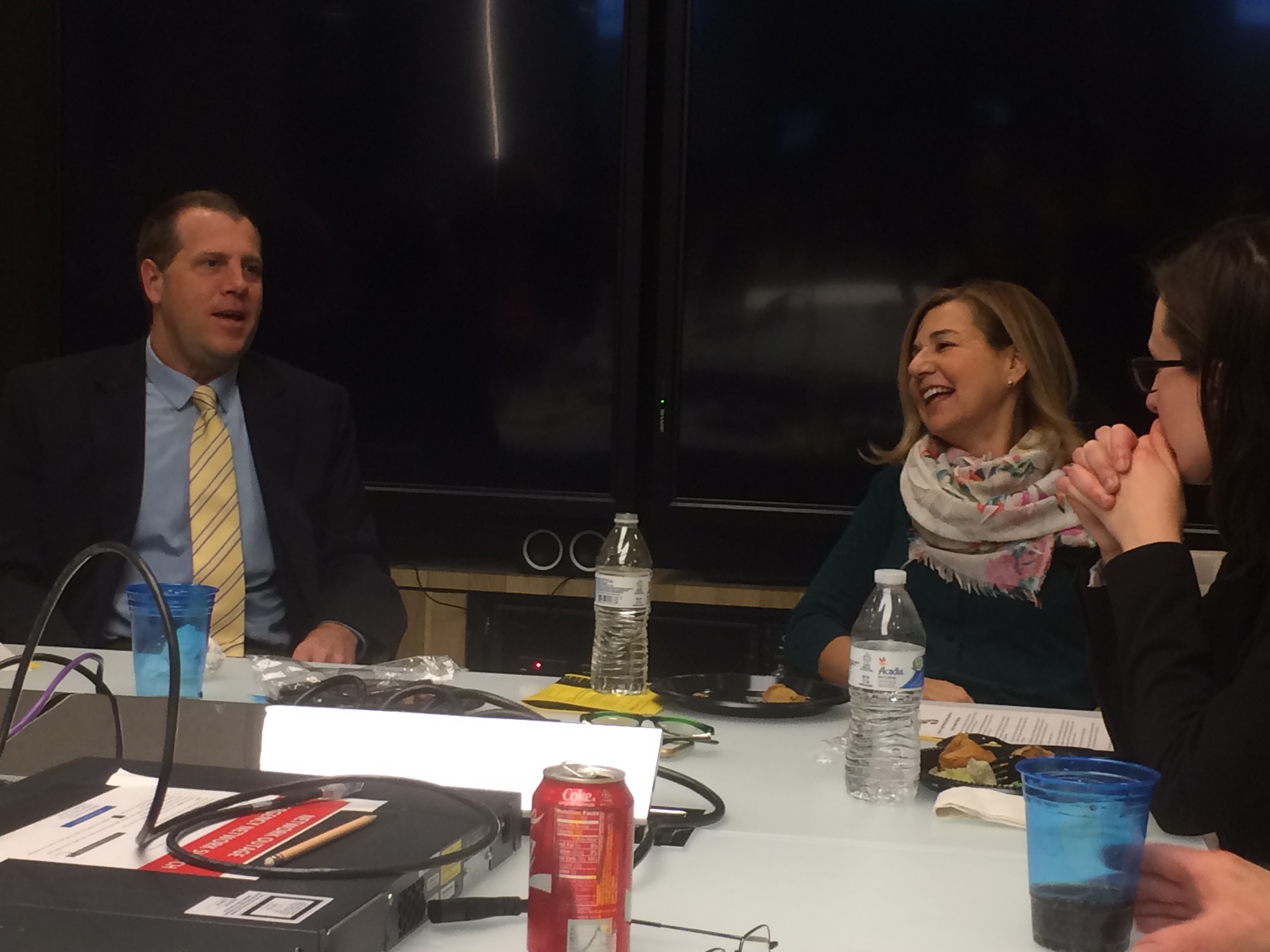
As social media faces a deluge of fake news, Facebook needs to recognize the extent of the problem and hire the equivalent of an executive editor, Washington Post media columnist Margaret Sullivan told a journalism event at the Post this evening. Whether the position goes by that title or not doesn’t matter, but the social media giant needs this sort of accountability, she suggested in Q&A with Post media blogger Erik Wemple. Some have said Facebook bears part of the blame for spreading fake news, which may have partly influenced the outcome of last Tuesday’s elections in which Republican Donald Trump won the presidency.
Facebook needs to rethink its approach “because so much fake news has sprung up there,” Sullivan said at the panel, also sponsored by the Society of Professional Journalists D.C. Pro Chapter. “Have a really serious editor there. and you can call that person the chief sharing officer” or some such tech-nomenclature title, she said to audience laughter. The company needs more than algorithms and community standards to deal with such news issues, she continued. “It’s big and it’s sprawling, but at least have somebody whose job it is.” It may even take a team of people, Sullivan said.
Just this week, Google and Facebook said separately that they are taking further efforts to crack down on fake news. Facebook said it updated its advertising policies to not display ads in websites that show such news.
It’s not just Facebook that has a news problem, Sullivan suggested. She said that major social media platforms need to rethink some of their approaches. Of Twitter, she agreed that “it is a cesspool, but it’s my cesspool.” Sullivan is a frequent user of Twitter, and is credited by some with taking the job of New York Times public editor into the digital age. Until she joined the Post earlier this year, she was the Times’ public editor for a few years.
Sullivan, who has been critical of Trump’s handling of the news media, had some harsh words for Steve Bannon of Breitbart News, the incoming senior counselor to the next administration. While some have worried that having a news executive as a White House aide will lead to the U.S. equivalent of Russia‘s Pravda, Sullivan partly dismissed those concerns.
“I don’t think that the United States is going to have Pravda” in Breitbart News anytime soon, Sullivan said. “But it does concern me,” given the outlet doesn’t always “play it straight” and is not “known for being completely honest.” Of Bannon, Sullivan said, “he’s a guy where if there is an explosion and a fire, look around, and Steve Bannon will be standing there with matches and a can of kerosene.”
Even when journalists and news organizations get threats, as occurred during the election, they shouldn’t back off, Sullivan recommended. Media organizations and newspapers “have to do their jobs, just do their jobs, and sort of deal with whatever comes up in the moment. I do not think there can be some sort of blanket policy” for how to proceed when threats occur, she said. “The idea of pulling back is not a good possibility. You can’t really take it to court.”
Sullivan and Wemple were introduced by SPJ DC board member Al Leeds, who noted that he worked at the Post for three decades in its old building a few blocks away from the current HQ. And SPJ DC President Kathy Burns offered opening remarks before Leeds.
–Jonathan Make
This story was previously published here.
